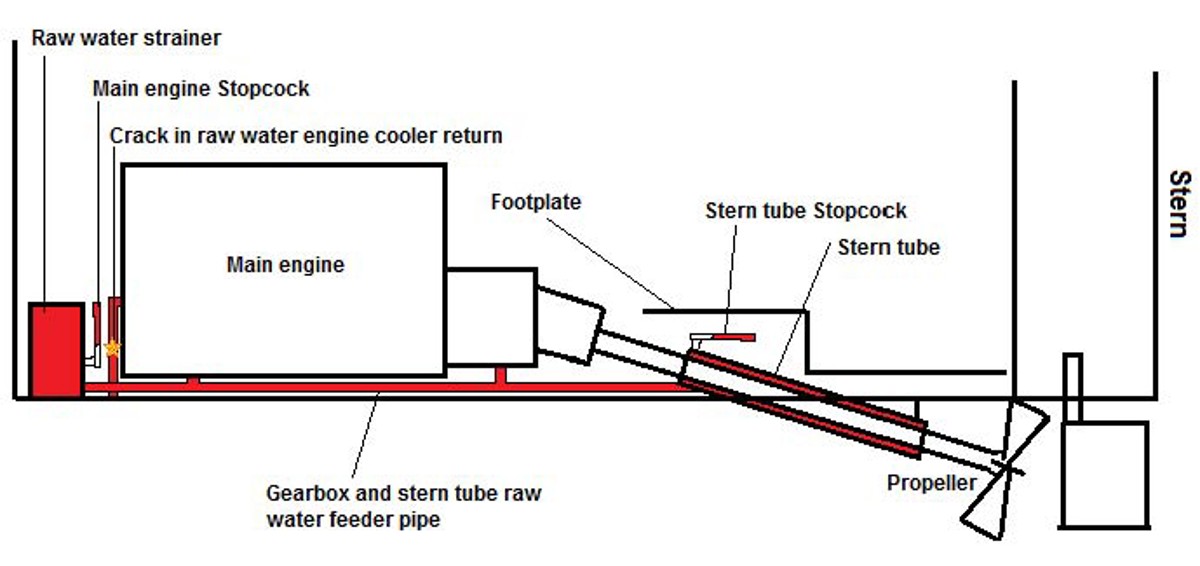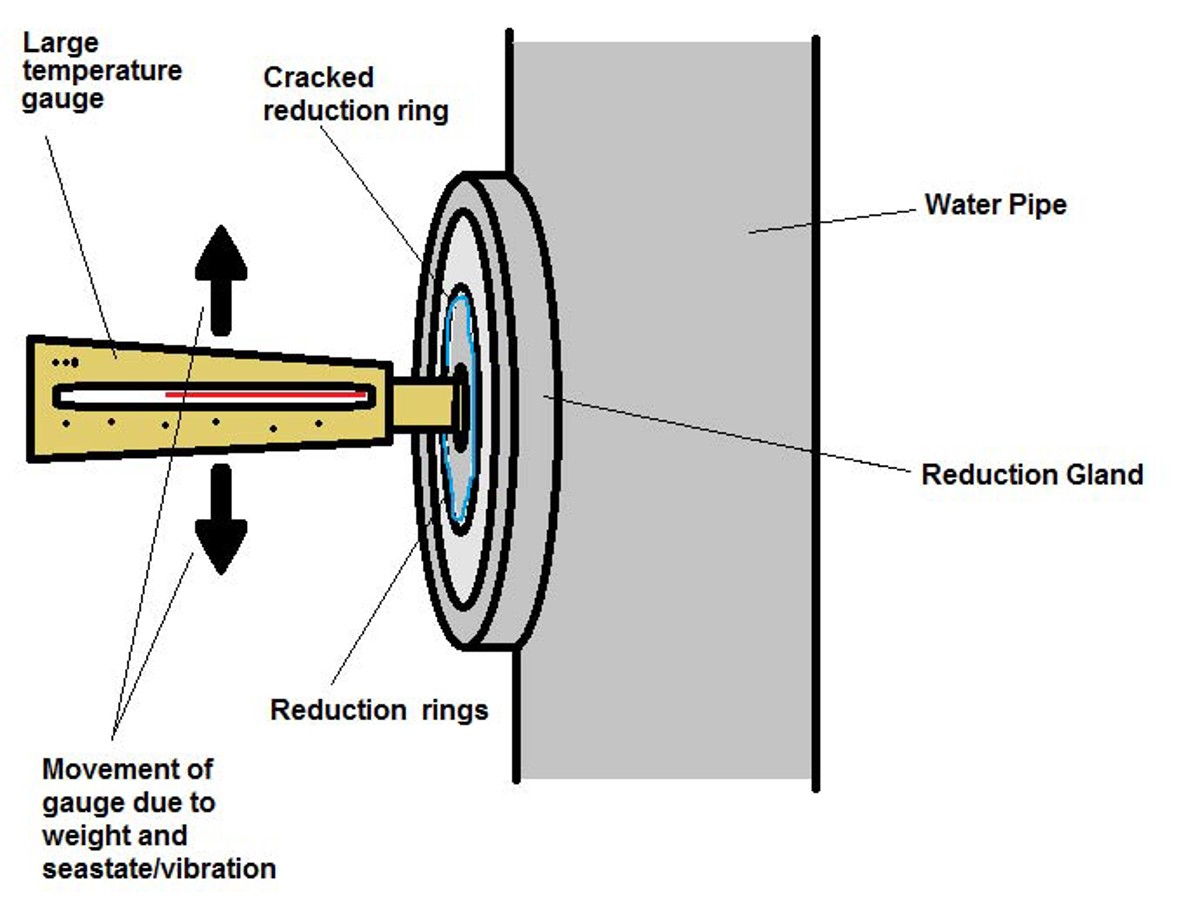Near-miss: Unexpected water ingress during fault finding of a cracked water pipe
- Safety Flash
- Published on 29 May 2015
- Generated on 4 April 2025
- IMCA SF 07/15
- 2 minute read
Jump to:
A Member has reported a near miss incident in which large volumes of sea water were found in the bilges of a small boat (offshore wind turbine CTV).
What happened?
The water was discovered during pre-shut down checks when the vessel was alongside. After initial fault finding it was found that there was a leak due to a cracked raw water cooling return pipe from the port side main engine. The crew closed the raw water sea chest and after making every effort to temporarily seal the crack, went ashore to seek a long-term solution.
When the crew returned to the engine room it was found that the leak had continued to flow into the bilge, though not much had entered the bilge; it was thought that it was probably resting water from the engine. The bung was removed and the water flow was monitored to check that the resting water was emptying out of the system, after approximately 20 minutes the water had not ceased to stop flowing and the crew became concerned.

location of stopcocks

original fault
Findings
Our member notes:
- During subsequent further fault finding to eliminate the source of the water flow, it was found that the flow was coming from the stern tube.
- This particular type of vessel was propeller-driven with water lubricated stern tubes.
- Underneath the floor plate at the stern gland there was another seacock; this seacock had not been highlighted to the crew during delivery of the vessel.
- There was no hatch in the foot plate to allow easy access to the valve.
- The pipe was repaired the following morning.
- An investigation is currently underway as to why the pipe cracked.
- Preliminary consideration was that it may be due to the weight of the temperature gauge causing the pipe to weaken over time.
- Our member required the crews of other similar CTVs from the same manufacturer to check the plastic pipes in the engine rooms regularly for signs of deterioration or stress around the reduction glands and temperature/pressure gauges, and any deficiencies were to be immediately reported to the management.
- Preliminary consideration was that it may be due to the weight of the temperature gauge causing the pipe to weaken over time.
Actions
Members may wish to refer to the following incidents (key words: water, ingress, CTV, engine):
- Loss of a vessel (owing to water ingress to engine room)
- Water ingress to bow thruster space
- Fire in wheelhouse on offshore renewables crew transfer vessel
Related safety flashes
-
IMCA SF 19/14
18 December 2014
-
IMCA SF 05/10
28 July 2010
-
IMCA SF 09/02
1 September 2002
IMCA Safety Flashes summarise key safety matters and incidents, allowing lessons to be more easily learnt for the benefit of the entire offshore industry.
The effectiveness of the IMCA Safety Flash system depends on the industry sharing information and so avoiding repeat incidents. Incidents are classified according to IOGP's Life Saving Rules.
All information is anonymised or sanitised, as appropriate, and warnings for graphic content included where possible.
IMCA makes every effort to ensure both the accuracy and reliability of the information shared, but is not be liable for any guidance and/or recommendation and/or statement herein contained.
The information contained in this document does not fulfil or replace any individual's or Member's legal, regulatory or other duties or obligations in respect of their operations. Individuals and Members remain solely responsible for the safe, lawful and proper conduct of their operations.
Share your safety incidents with IMCA online. Sign-up to receive Safety Flashes straight to your email.